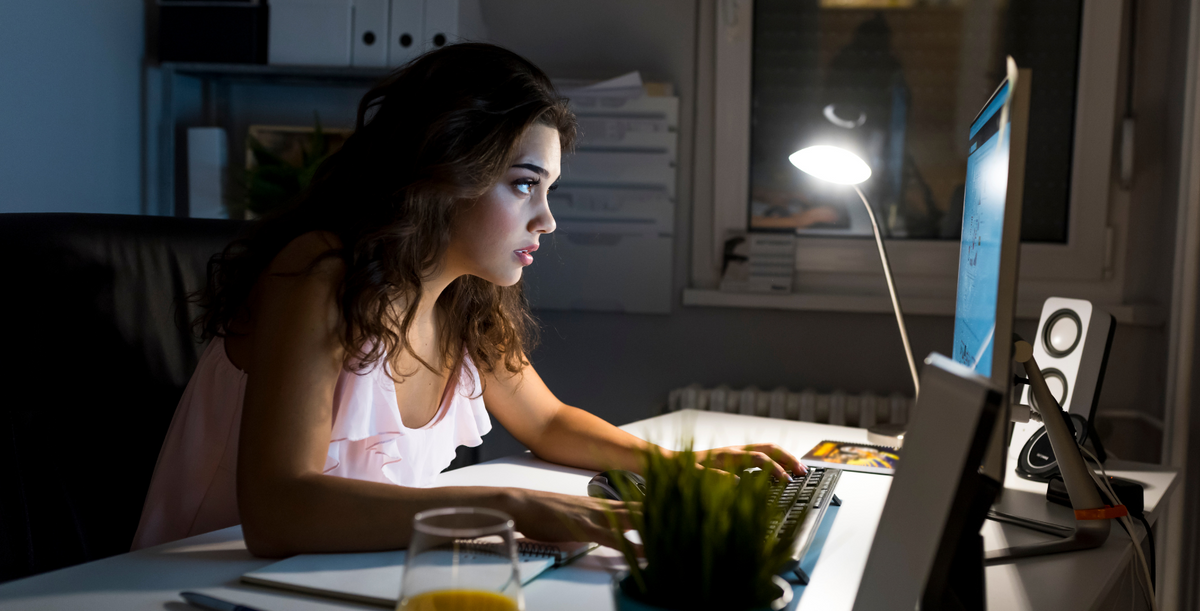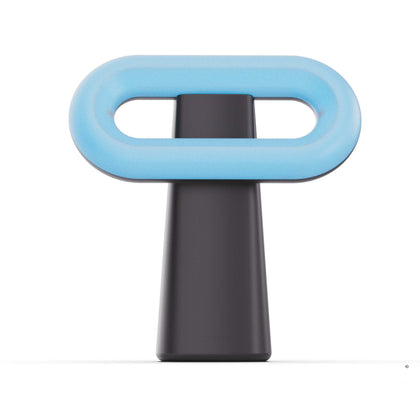
The key to healthy evening light.
|
|
Time to read 2 min
You may have heard that blue light at night can impact sleep.
That includes light from your phone and other screen-based devices. But it also includes the bulbs used to light your home.
In this article we’ll cover why blue light has this effect, and what kind of light experts recommend you use in the evening for better sleep.
How does light impact sleep?
The time you naturally wake up and fall asleep is regulated by your circadian rhythm: an internal, biological clock.
In addition to your sleep-wake cycle, the circadian rhythm influences almost every part of your body, including the immune and cardiovascular systems, mood, and cognitive performance.


Humans evolved out of bright days and dark nights to sync our circadian rhythms with the Earth’s day-night cycle. Specialised cells in your eyes, sensitive to blue light, detect subtle changes in sunlight and time the circadian rhythm accordingly.
But evening exposure to artificial blue light—from home lighting and devices—signals to your circadian rhythm that the sun hasn’t set, disrupting your circadian rhythm and delaying the release of sleep hormones.

What’s special about blue light?
The cells in the eye that signal to the circadian rhythm are only sensitive to a narrow band of visible light, peaking at 490 nm, which is part of the blue spectrum.
Your body clock relies on exposure to lots of blue light to set the circadian rhythm during the day. But even comparatively small amounts of blue light at night can throw your rhythm out of sync.
It's no surprise that experts recommend minimising exposure to blue light in the evening1.
How to minimise blue light at night
There are several steps you can take to reduce evening blue light:
- Dim or switch off unnecessary lights.
- Switch to warmer colour temperature bulbs in the places you spend your evenings.
- Use a blue light filter on devices and dim the brightness.
- Blue light glasses are another way to block out blue light at night without changing a single bulb. But there are a few catches. Read more.

It’s worth noting that when it comes to circadian alignment, evening exposure is only half the equation. Sufficient exposure to the right blue light during the day is equally important.
Thoroughly engineered to support your circadian rhythm, Loop mimics the light of a blue sky during the day, yet emits no blue light at night, offering a complete circadian lighting solution.
What about when you're ready to sleep?
Up until this point we’ve been looking at evening light. But what about when you’re finally ready to get some shut eye.
Experts agree that even small amounts of light can have a negative impact on your sleep. For optimal sleep, aim for complete darkness—or as close to it as you can get1.
If you live in an area with plenty of light pollution and you don’t have black out curtains, using an eye mask is a good option.
Conclusion
Even small amounts of blue light at night can have a disruptive effect on your circadian rhythm and sleep. Avoiding evening blue light by using warm coloured lighting and a blue light filter on your devices is a great way to support your body’s natural rhythm.



